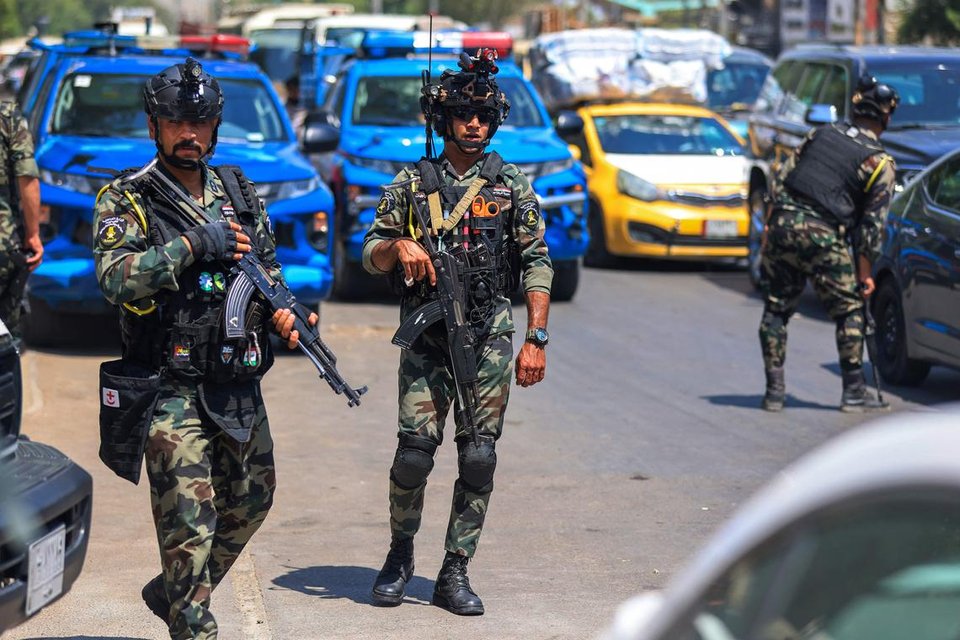By Staff Reporter
The US ordered some staff to depart the embassy in Baghdad and authorised military service members’ families to leave the Middle East, officials said, after Iran threatened to attack US bases if talks over its nuclear program fall through.
The decision to reduce staffing in Iraq was “based on our latest analysis,” according to the State Department. Defense Secretary Pete Hegseth authorised family members of US military stationed across the region to leave, according to a Pentagon statement.
Neither statement cited a specific threat but the New York Post published an interview in which President Donald Trump said he’s growing less confident about the prospects for negotiations to impose new limits on Iran’s nuclear program.
Iran, meanwhile, warned of retaliation against US military assets in the Middle East if the talks collapse and the Islamic Republic is attacked.
“I sincerely hope it won’t come to that and that the talks reach a resolution,” Iran’s Defense Minister Aziz Nasirzadeh said in televised remarks.
“But if they don’t, and conflict is imposed on us, the other side will undoubtedly suffer greater losses. We will target all US bases in host countries without hesitation.”
Israeli strike on Iran?
US officials have been told that Israel is ready to launch an operation into Iran, which is part of the reason why the Trump administration advised some Americans to leave the region, CBS News reported on Wednesday evening, citing multiple sources it did not name.
The initial report did not offer a time frame for any operation.
Oil price jumps
West Texas Intermediate futures surged as much as 5.2% after Reuters reported earlier that the US embassy was preparing for an ordered departure in response to heightened security risks in the region. Iraq is the second-largest OPEC producer.
Warning to merchant mariners
Earlier in the day, the UK Navy issued a rare warning to mariners that higher tensions in the Middle East could affect shipping, including through the Strait of Hormuz.
Shipping has often been risky in the Middle East, but UKMTO, which acts as a liaison between the navy and commercial shipping, rarely puts out general warnings such as this one.
“UKMTO has been made aware of increased tensions within the region which could lead to an escalation of military activity having a direct impact on mariners,” the advisory said. “Vessels are advised to transit the Arabian Gulf, Gulf of Oman and Straits of Hormuz with caution.”
Heightened risks
The Joint Maritime Information Center, an information sharing hub that comes under the Combined Maritime Forces, warned of heightened risks from the discord, including the possible use of missiles around chokepoints.
Hormuz is the world’s most important oil chokepoint and Iran has frequently threatened to close it during times of geopolitical strife. However, it has never done so.
Hegseth’s move applies to family of service members stationed across the US Central Command area of operation, which includes most of the region, according to the statement.
“Centcom is working in close coordination with our Department of State counterparts, as well as our Allies and partners in the region to maintain a constant state of readiness to support any number of missions around the world at any time,” the Pentagon said.
Fresh talk
Tehran says it is preparing a fresh proposal regarding its atomic activities before a sixth round in Muscat, on Sunday.
That “can be used as a basis for work,” Deputy Foreign Minister Majid Takht-Ravanchi said on Tuesday, suggesting Iran is considering a temporary deal that acts as a framework while technical details — many of them highly complex — are worked on.
Trump has consistently said he wants an agreement that curbs Iran’s atomic activities and that the US could strike Iran if the talks break down.
Israel — which believes a nuclear-armed Iran would pose an existential threat — says it could attack Tehran, with or without US help.
Iran has long denied having plans to build a nuclear weapon.


